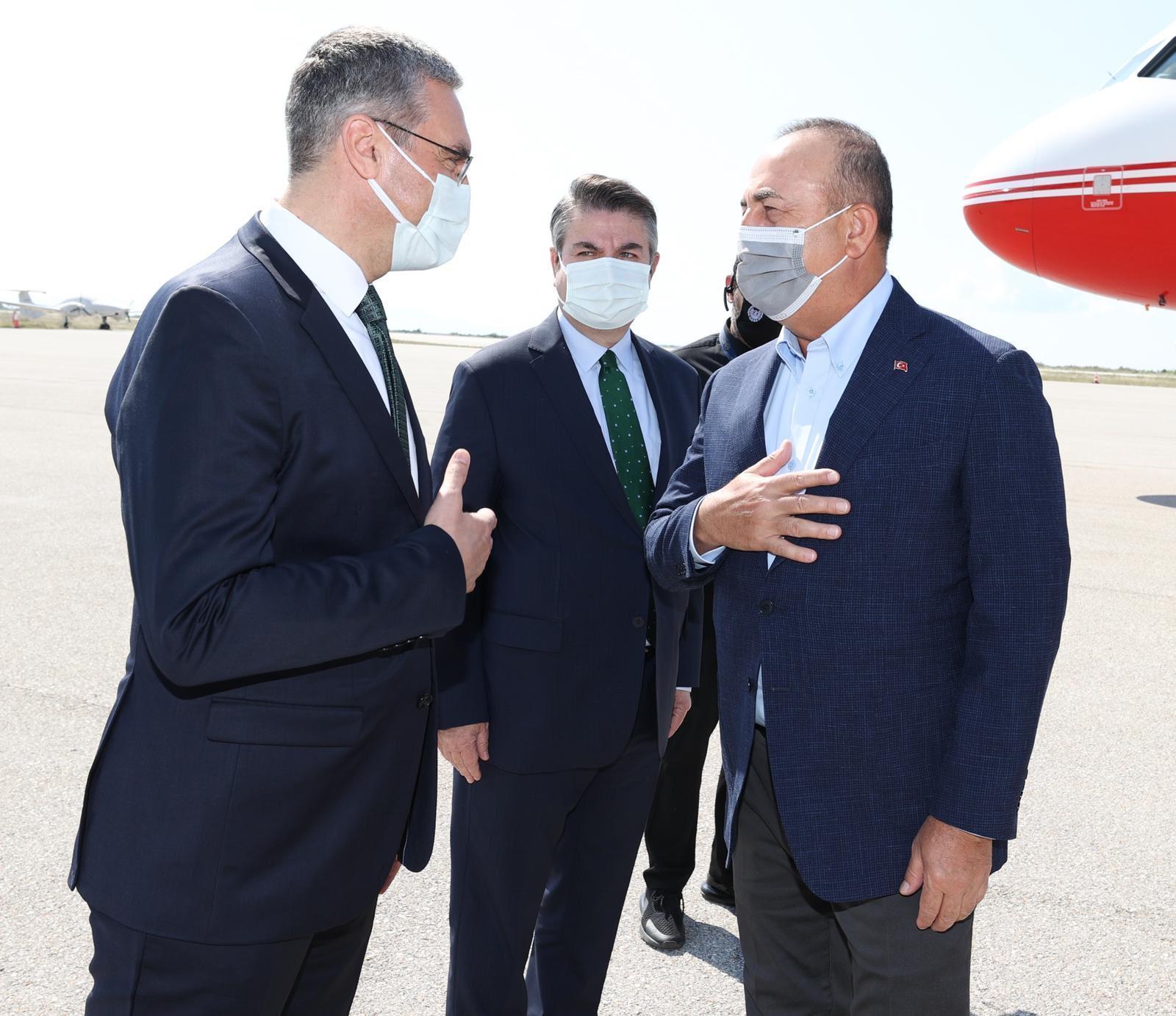
Turkey has cited a “positive agenda” in the continued talks with neighboring Greece as Foreign Minister Mevlüt Çavuşoğlu is poised to hold formal talks with his counterpart Nikos Dendias on May 31 in Athens after the latter’s visit to Ankara last month.
“I am going to Greece with a positive agenda,” Çavuşoğlu told reporters accompanying him on May 30. Turkey and Greece have launched political and military talks to resolve the contentious issues stemming from the Aegean and Mediterranean after a year-long crisis throughout 2020.
Çavuşoğlu’s visit to Greece comes after his counterpart’s trip to Ankara, where he caused a diplomatic spat during the press conference. Despite it, the two ministers agreed on Çavuşoğlu’s visit to Greece during the 5+1 U.N. meeting on Cyprus in late April in a bid not to suspend the political dialogue.
Just a day before Çavuşoğlu’s visit to Greece, Deputy Foreign Minister Sedat Önal met the Greek Foreign Affairs deputy minister on May 29 for Economic Diplomacy and Openness Konstantinos Fragogiannis in Kavala to discuss business collaboration, tourism, interconnectivity on bilateral and regional levels and on the reactivation of older initiatives that have not been implemented.
Çavuşoğlu-Dendias meeting is also seen as a prelude to a potential encounter between President Recep Tayyip Erdoğan and Greek Prime Minister Kyriakos Mitsotakis in Brussels on the occasion of the NATO leaders’ summit in mid-June.
Western Thrace FM’s first stop
The Turkish minister’s first stop was the Western Thrace, which hosts around 100.000 Greek citizens of Turkish roots.
“In Greece to meet members of the Turkish minority in Western Thrace and discuss our bilateral relations,” Çavuşoğlu said on Twitter as he landed in Gümülcine or Komotini on early May 30. Greece does not accept the characterization of its minority as Turkish.
He started his program in Komotini by meeting the muftis of Komotini and Xanthi, or İskeçe, as he said on Twitter, “The work of the Muftis contributes greatly to the preservation and strengthening of the unity and solidarity of the Turkish minority.”
Çavuşoğlu met the representatives of the Turkish minority in Western Thrace over lunch and later flew to Athens, where he was scheduled to be hosted by Nikos Dendias over an informal dinner.
The formal talks will be held on May 31, following which the two ministers are planned to address the media.
He also visited Celal Bayar High School, one of the two Turkish minority high schools. “For the Turkish minority’s children of all ages to have an education in better conditions and in their mother tongue is important. Will continue to support our kinsmen to solve these problems,” he said on Twitter.
Turkey, Greece alone can resolve problems
Çavuşoğlu outlined Turkey’s position concerning the problems it has with Greece in an interview with the Greek To Vima, underlining that he has always been optimistic about resolving the existing problems with its neighbor.
“As two neighbors, we are bound to live in the same geography. Therefore, we must define our relationship as cooperation rather than conflict. It is in our hands to determine our destiny and the way forward,” he said.
Citing Greece’s efforts to turn its bilateral problems into a Turkey-EU matter, Çavuşoğlu said, “Greece should avoid using the EU as a trump card and embrace the existing positive momentum. Turkey and Greece alone can resolve the problems, not the EU.”
Turkey and the EU have recently produced a positive environment, and this should not be abandoned, Çavuşoğlu stressed, adding, “The positive agenda should be based on mutually agreed concrete and meaningful steps.”
Turkey and Greece dispute over the maritime borders in the eastern Mediterranean as both accuse each other of violating their rights and international law. Çavuşoğlu reiterated that Greece should give up its maximalist demands in the eastern Mediterranean, saying, “I must repeat that thinking that Turkey will be confined only to its shorelines in the Aegean and Mediterranean is a wrong calculation made by the Greek side.”